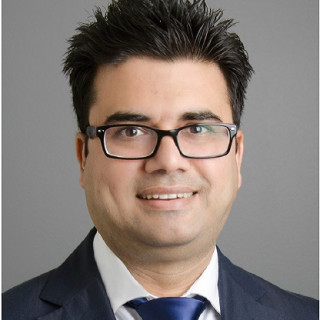The Endocrine Society meeting was held from June 10–June 14, 2022, in Atlanta and was well-attended, with diverse topics presented. It was refreshing to see the inclusion of endocrine oncology topics, especially toxicities due to immune-checkpoint inhibitors, also called immune-related adverse events (irAEs). These irAEs are seen with increasing frequency in clinical practice as the indications and use of immune-checkpoint inhibitors expand across different cancers. Two major immune-checkpoint inhibitors, anti-CTLA-4 and PD-1 or PDL-1 inhibitors, target these receptors and activate the body’s immune system, specifically T-cells causing hyper-immune reactions against cancer cells. These agents have revolutionized the care of many cancers such as melanoma and Hodgkin lymphoma by providing cures even in advanced stage and relapsed/refractory diseases. Unfortunately, due to the hyperimmune state, some of the normal cells and organs can be affected by immune-checkpoint inhibitors due to the off-target effect. Among the endocrine system, the thyroid gland, followed by the pituitary gland, are the most common organs involved in the process. While less common, cases of Type 1 diabetes (~1% incidence) have also been reported.
Endocrinologists and PCPs need to be aware of irAEs, especially endocrine toxicities, since early diagnosis and management of hormone deficiency states can help mitigate symptoms and allow patients to continue effective anti-cancer therapy with immune-checkpoint inhibitors. Society for Immunotherapy of Cancer (SITC) published the first guidelines for managing toxicities associated with immune checkpoint inhibitors in 2017 and most recently updated them in 2021. These recommendations are an excellent resource for providers to help patients navigate the irAEs with immune-checkpoint inhibitors.
A special session titled “When the Immune System Gets It Wrong” discussed auto-immunity and other immunology-related aspects of endocrine health and disease. An endocrinologist from UCLA, Dr. Melissa G. Lechner, gave a presentation on the understanding of pathophysiology and genetics of immune checkpoint-related thyroid dysfunction, highlighting the molecular aspects of irAEs. Multiple poster abstracts demonstrating the irAEs in the endocrine system were presented in this meeting as well.
Keeping in mind the above issues, the Endocrine Society formed an Oncoendocrinology Special Interest Group during this year’s annual meeting. As per the Endocrine Society, this group aims to help like-minded endocrinologists interested in endocrine oncology expand professional networks, identify potential collaborators, and explore research and care through regular educational programming. This is an excellent initiative to disseminate the knowledge of immune checkpoint inhibitors-related toxicities to the endocrinology community, primary care physicians, and other health care providers.
Dr. Sharma has no conflicts of interest to report.
Image by GoodStudio / Shutterstock







